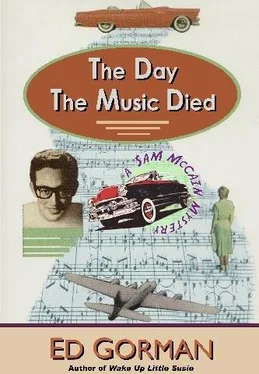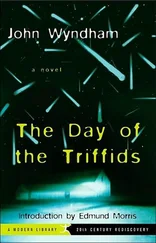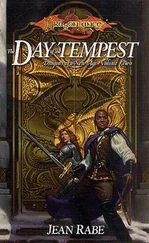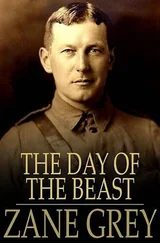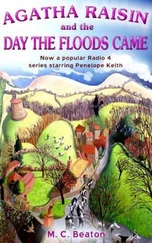Ed Gorman - The Day The Music Died
Здесь есть возможность читать онлайн «Ed Gorman - The Day The Music Died» весь текст электронной книги совершенно бесплатно (целиком полную версию без сокращений). В некоторых случаях можно слушать аудио, скачать через торрент в формате fb2 и присутствует краткое содержание. Жанр: Криминальный детектив, на английском языке. Описание произведения, (предисловие) а так же отзывы посетителей доступны на портале библиотеки ЛибКат.
- Название:The Day The Music Died
- Автор:
- Жанр:
- Год:неизвестен
- ISBN:нет данных
- Рейтинг книги:3 / 5. Голосов: 1
-
Избранное:Добавить в избранное
- Отзывы:
-
Ваша оценка:
- 60
- 1
- 2
- 3
- 4
- 5
The Day The Music Died: краткое содержание, описание и аннотация
Предлагаем к чтению аннотацию, описание, краткое содержание или предисловие (зависит от того, что написал сам автор книги «The Day The Music Died»). Если вы не нашли необходимую информацию о книге — напишите в комментариях, мы постараемся отыскать её.
The Day The Music Died — читать онлайн бесплатно полную книгу (весь текст) целиком
Ниже представлен текст книги, разбитый по страницам. Система сохранения места последней прочитанной страницы, позволяет с удобством читать онлайн бесплатно книгу «The Day The Music Died», без необходимости каждый раз заново искать на чём Вы остановились. Поставьте закладку, и сможете в любой момент перейти на страницу, на которой закончили чтение.
Интервал:
Закладка:
Eighteen
I walked around downtown for ten minutes. The fresh air restored me. It was sun-golden with life. Quite a contrast to the bowels of death in the morgue.
I smiled at all the pretty ladies who worked in the various stores, trapped behind plate glass in their starchy blouses and fashionable bows.
I wanted to set them all free. We’d have a parade down Main Street. We’d be happy and immortal. It was like being drunk and I realized it was irrational, some kind of life-affirming panic reaction to the morgue, but so be it. I doted on the hitching posts. I was old enough to remember when farmers still occasionally rode horses into town and latched them to these posts. I stood in front of the Civil War memorial.
I could remember a stirring program Alistair Cooke had done on it for Omnibus one Sunday afternoon. And how on the local news that night, they’d read a list of all two hundred boys and men from this county who’d died in that war. And then I stood in front of the Methodist church staring up at its looming spire and I felt a stirring of deity in my irreligious heart. I wanted so badly to believe and it was with great sorrow that I did not.
And then the exhilaration was gone. I wasn’t leading a parade and I certainly wasn’t immortal. I was a hayseed standing on a hayseed street in a hayseed town and just then a manure wagon lumbered past spewing dung-tinged bits of hay as if to confirm my hayseed status. Maybe I needed to hang out in the morgue more often to appreciate my life. Then the beautiful frenzy was gone.
I walked over to a phone booth and called the hospital where Lurlene Greene worked. She sounded scared when they finally got her to the phone, scared as if I was going to tell her bad news.
I felt sorry for her. Her color and her husband had both put her through unimaginable hells.
“I’m sorry to bother you, Lurlene, but I’m trying to find Darin.”
A pause. “He didn’t come home last night, Mr. McCain.” She was whispering. She obviously didn’t want to share her business with coworkers. She sounded weary and worn.
“Any idea where I could find him?”
“You know where the Trax is?”
“Yes.”
“They serve colored there. That’d be my only guess.”
“I’ll try it. Thanks.”
Her voice got even lower. “You see him, Mr. McCain, you tell him his little daughter is running a bad fever and he should be home where a father belongs.”
“I’ll tell him, Lurlene.”
She was crying, then. “I just don’t know what to do no more, Mr. McCain.”
I wanted to be back leading my parade down Main Street. I’d have Lurlene and her little daughter in my parade right up front and we’d all be happy and immortal together.
“I’m sorry, Lurlene.”
Life is like that sometimes, I thought. But why does it always seem to be like that for the good people instead of the bad ones?
“I better get back, Mr. McCain.”
“Thanks again, Lurlene.”
I got in the car and headed for the edge of the city that had once been the site of a large railroad roundhouse. There’d been a lot of Negroes and Mexicans working the railroad in those years and some of them had stayed on to raise families.
Each group had its own trailer court. The Trax was a tavern that sat right between the two trailer courts. Cliffie always sent his white boys out there when they were eager to kick a little ass without the respectable citizens getting too upset. The white boys always won, being the possessors of badges, guns and billy clubs, but they never escaped unscathed. They sported black eyes and split lips and limps for a week or so after each skirmish. Nights, they hung out in downtown taverns, amusing all their fawning friends with their tales of derring-d, though being one of two white cops on a lone Mexican isn’t something I’d necessarily want to brag about.
Years ago, the Trax had been a storage building for the railroad. But when the railroad changed hands right before the war, and the new company divested itself of a lot of its holdings including the roundhouse and support buildings, the Trax became a tavern.
A glance at the cars parked around the aging wooden building told you all you needed to know about the social status of the regulars. There were even two Model-T’s, one a black box with a roll-out windshield, the other a black box with the back end sawn off and a bed of two-by-fours laid in to turn it into a truck-the kind of clanking, clattering Okie-mobiles you always read about in Steinbeck. The other cars were rusted-out Chevrolets and Fords that dated back before the war.
A number of them had smashed windows and doors and back-ends. Darin Greene’s Olds was in the back.
When I opened the front door of the place, a variety of smells and sounds assaulted me, from the brine in which the pickled pig’s feet floated, to the choking heavy odor of cheap cigars. The men’s room wasn’t exactly smelling like spring flowers either. It was like the old joke: it got cleaned once a year whether it needed it or not.
The song on the jukebox was “Work with Me Annie,” a very suggestive black rhythm and blues song that two local church groups demanded be taken out of the record store. The darkness was blinding, the only real light being the small display of middle-priced whiskey bottles behind the bar, the light above the shuffleboard table and the jukebox. All eyes were on me and few were friendly. Most just looked curious. I couldn’t have looked more like a tourist if I’d been wearing a lime-green short-sleeved shirt and plaid Bermuda shorts and had a camera strap slung around my neck.
I walked over to an open section of bar and ordered a beer. I didn’t plan on drinking it. The bartender, who had a series of scars on his face, and who was missing a couple of front teeth said, “I think you took a wrong turn somewhere, my friend.”
The men along the bar smiled and winked at one another.
“I’ll have that beer, please,” I said.
“He’s that lawyer,” somebody from the shuffleboard table said.
“Lawyer?” the bartender said, sounding concerned.
“Nothing to worry about,” I said. “I’m trying to find Darin Greene.”
The bartender waved a hand around. “Don’t look like he’s here, does it? Or do we all look the same to you?”
He got some more laughs and more winks from his customers.
The record changed, the new selection being Ray Charles. You could feel the life force in the place change. He sang “I Got a
Woman” but the exuberance of his voice said that he had everything else, too.
“Cliffie send your ass out here?” the bartender wanted to know.
“You call him Cliffie, too?” I asked.
“Yeah. So what?”
“That’s what I call him.”
“Cliffie and him hate each other, man. This boy is all right. Leastways, he ain’t no Sykes.”
The speaker was gray-haired old and cheap-beer fat and he sat on a wooden chair near the shuffleboard. He had a cigar butt in a corner of his mouth and a bottle of Hamms in his right hand. He wore dark glasses.
“That’s old Earle,” the bartender said.
“He’s blind. But don’t be fooled, man. Old Earle knows everything.”
“Well, he’s right about me and Cliffie. We hate each other.”
“That still don’t explain why you’re out here.”
“Looking for Darin Greene. Just the way I told you.”
“What you want Darin for? He’s a friend of mine.”
“Well, for one thing, his wife would like him to come home. Their little girl is running a high fever.”
“And for another thing?”
This was the keeper of the Darin gate. You see this all the time in small towns, a man or woman who latches on to somebody important, and appoints himself the gatekeeper. The important person doesn’t even know about it sometimes, not at first anyway, but eventually he finds out and comes to appreciate the service. And meanwhile, the gatekeeper, in his own mind anyway, becomes pretty damned important himself. To the bartender, Darin would always be the gleaming high school football star.
Читать дальшеИнтервал:
Закладка:
Похожие книги на «The Day The Music Died»
Представляем Вашему вниманию похожие книги на «The Day The Music Died» списком для выбора. Мы отобрали схожую по названию и смыслу литературу в надежде предоставить читателям больше вариантов отыскать новые, интересные, ещё непрочитанные произведения.
Обсуждение, отзывы о книге «The Day The Music Died» и просто собственные мнения читателей. Оставьте ваши комментарии, напишите, что Вы думаете о произведении, его смысле или главных героях. Укажите что конкретно понравилось, а что нет, и почему Вы так считаете.
